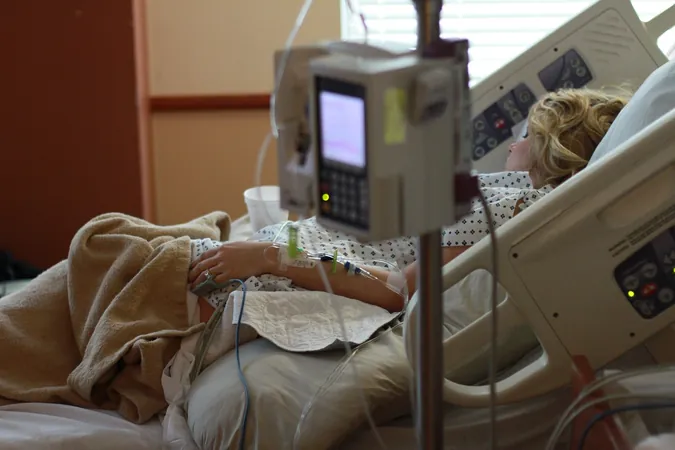
Nursing Shortages: A Hidden Threat to Patient Safety Revealed in New Study!
2024-09-24
Introduction
A groundbreaking study published in the British Journal of Surgery has uncovered a shocking connection between nursing shortages and adverse patient outcomes, including prolonged hospital stays and increased mortality rates. Titled "Associations between outcomes for surgical admissions and nurse staffing—a longitudinal study using routine data from English Acute Hospitals," this research highlights a pressing issue that could have far-reaching implications for healthcare systems worldwide.
The Scale of the Problem
Every year, an astounding 300 million surgical procedures are performed globally, sparking growing concern among healthcare professionals about the quality of care provided to patients. Alarmingly, nearly 55% of surgical site infections—often attributed to inadequate care—are deemed preventable. While the medical community has made strides in improving safety through checklists, enhanced staff training, and better teamwork, an often-overlooked factor remains: the critical need for adequate nursing staff.
Key Findings of the Study
The importance of nurses in ensuring the safety and health of surgical patients cannot be overstated. The study reveals that shortages of both registered nurses and nursing assistants substantially elevate the risk of various negative outcomes. Researchers from the University of Southampton utilized data from 213,910 surgical admissions across four NHS hospitals from April 2015 to February 2020 to delve into this pressing issue.
Impact on Patient Outcomes
The findings are alarming: when staffing levels fall below the ward's mean, the risk of readmission amplifies by 2.3% due to nursing shortages, and by 1.4% attributable to the lack of nursing assistants. Moreover, insufficient nursing staff was linked to increases of 4.8% in deep vein thrombosis, 5.7% in pneumonia cases, and a staggering 6.4% rise in pressure ulcers.
Mortality Risks
Even more concerning, the risk of mortality escalates dramatically; each day with inadequate registered nurse staffing heightens this risk by 9.2%, while low nursing assistant levels increase it by 10.3%.
Conclusion
Lead author Paul Meredith emphasized the critical nature of the findings, stating, "The safety of patients undergoing surgery is paramount, and it's paramount that we focus not just on systems and policies, but also on workload as a significant risk driver. The risks to surgical patients extend well beyond the operating room. Ensuring sufficient nursing staff is essential for the safety of patients during both surgeries and their recovery." This essential research sheds light on an urgent issue facing the healthcare system, prompting a call to action for hospital administrators and policymakers alike: addressing nursing shortages is not just an operational challenge—it's a vital component of improving patient safety and outcomes.
Call to Action
Is our healthcare system prepared to confront this hidden threat? It’s time to rethink staffing strategies before the consequences are too dire to ignore!




 Brasil (PT)
Brasil (PT)
 Canada (EN)
Canada (EN)
 Chile (ES)
Chile (ES)
 España (ES)
España (ES)
 France (FR)
France (FR)
 Hong Kong (EN)
Hong Kong (EN)
 Italia (IT)
Italia (IT)
 日本 (JA)
日本 (JA)
 Magyarország (HU)
Magyarország (HU)
 Norge (NO)
Norge (NO)
 Polska (PL)
Polska (PL)
 Schweiz (DE)
Schweiz (DE)
 Singapore (EN)
Singapore (EN)
 Sverige (SV)
Sverige (SV)
 Suomi (FI)
Suomi (FI)
 Türkiye (TR)
Türkiye (TR)